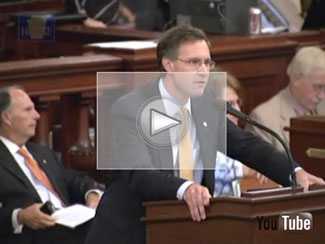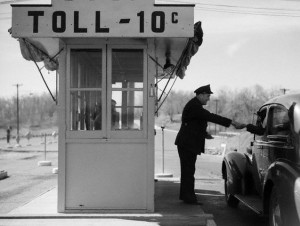“Plans Afoot For Troubled Paoli Rail Yard, Can It Become A Transportation Center With Buses And Better Parking?”
This Philadelphia Inquirer headline above was not written this week, this month, this year — no, the article is seventeen years old, dating from September 14, 1994!
This years-old Inquirer article focused on the possibility of turning the “problematic Paoli rail yard into a sophisticated intermodal transportation center” which would accommodate “a transportation center, complete with buses and improved parking.” Can it be that the dream, this vision for the future may still be possible? Maybe so.
At the last Board of Supervisors Meeting, I was disappointed that the supervisors did not update on the process of the Paoli Transportation Center. There had been previous discussion about an upcoming issuance of a Request-for-Proposal (RFP) on the N. Valley/Central Avenue road and bridge improvement project (part of the Paoli Transportation Center project) and I was seeking an update — specifically was an RFP issued? If so, what was the status, how many bidders, due date, etc.
Many of us have followed the saga of the train station for years, and remain interested in the progress (if any) on the project. My intention in asking for an official public update was certainly not to step on the toes of either the township staff or our elected officials, but just to seek information. What’s the old adage, “Ask and ye shall receive”? I was asking the questions, but I guess I wasn’t asking the right way or to the right people.
Although not listed on the township website, I discovered with some Internet research that the Tredyffrin Township Engineering Department has issued a ‘Letter of Interest’ for the “Paoli Road Improvement Project – Feasibility Study and Public Involvement Program”. According to the township’s Letter of Interest request, all phases of the Feasibility Study will be 100% state funded and that the township is encouraging responses from small firms and firms that have not previously done work for the township.
The township’s public Letter of Interest advertisement gives the full solicitation details on the Paoli Road Improvement Project and includes the following:
Tredyffrin Township Letter of Interest Request:
Paoli Road Improvement Project – Feasibility Study and Public Improvement Program
Tredyffrin Township will retain a PADOT qualified engineering and public involvement consultant team to provide a feasibility study and public involvement and outreach program to assess the traffic, roadway, infrastructure and community stakeholder needs, and identify potential alternatives for the existing local and PADOT roadway network located in Paoli, in the vicinity of S.R. 0030 (Lancaster Avenue), E./W. Central Avenues, Paoli Pike/ Greenwood Avenue, Darby Road, Plank Avenue and N./S. Valley Roads. The Township seeks a feasibility study that provides cost effective alternatives to allow for traffic calming, streetscape, intersection modification, and signal timing adjustments to address existing congestion and public safety concerns while providing for the needs of motorists, pedestrians, bicyclists, rail users and the overall vision for a multi-modal Paoli.
Alternatives included in the feasibility study should emphasize solutions that meet current PADOT design and safety standards, and the local stakeholder and Township vision for the Paoli Transportation and Town Center Districts. In addition to the Feasibility Study, an intensive coordinated public outreach and stakeholder involvement process must parallel the identified Feasibility Study phases to ensure final recommendations have been thoroughly discussed, stakeholder input received while ultimately working toward a consensus on roadway improvements for consideration and prioritization for future design and construction phases of the project.
The township’s Letter of Interest words, “. . . intensive coordinated public outreach and stakeholder involvement process . . .” aligns with my request that the public remain ‘in the loop’ and informed on the process of this important community project.
The list of companies already registered to submit a Letter of Interest to the township on the Paoli transportation project is impressive! To date, 50+ companies have registered, including local companies from Wayne, Malvern, West Chester, Collegeville, Exton and Kimberton and several companies from Lancaster, Gettysburg, New Jersey and Delaware. Source Management Onvia of Seattle, Washington has also registered to bid the project! Letters of interest are due by bidders to the township by 2 PM on September 15, 2011. It is my understanding that registration does not necessarily imply that all registered companies will submit a Letter of Interest.
According to the Letter of Interest advertisement by the township, the evaluation and selection process by Tredyffrin Twp is:
For the purposes of negotiating a contract, the ranking of a minimum of three (3) firms will be done directly from the Letters of Interest. Technical proposals will not be required prior to the ranking. Only the top three (3) firms will be requested to prepare technical proposals. The top three (3) firms will then be ranked based off the Technical Proposal and the top firm will be requested to submit a cost proposal.
In another big step for the Paoli Transportation Center project, the Southeastern Pennsylvania Transportation Authority (SEPTA) has issued a Request-for-Proposal, Proposal Number 11-091-DMH for qualified “Consultants for Architectural/Engineering Services for Paoli Intermodal Transportation Center”.
SEPTA’s A&E Paoli Intermodal Transportation Center RFP description states:
Consultant services include, but are not limited: the development of construction documents (plans and specifications) for the construction of the Paoli Intermodal Transportation Center in accordance with the scope of work of this RFP and in full compliance ADA and other governing authorities. The deadline for proposals is September 7, 2011.
The issuance of a Letter of Interest by Tredyffrin Twp and a Request-for-Proposal from SEPTA is positive and encouraging news for the community on the Paoli Transportation Center project and marks real progress in this long journey.
As Henry Ford said, “If everyone is moving forward together, then success takes care of itself.”

